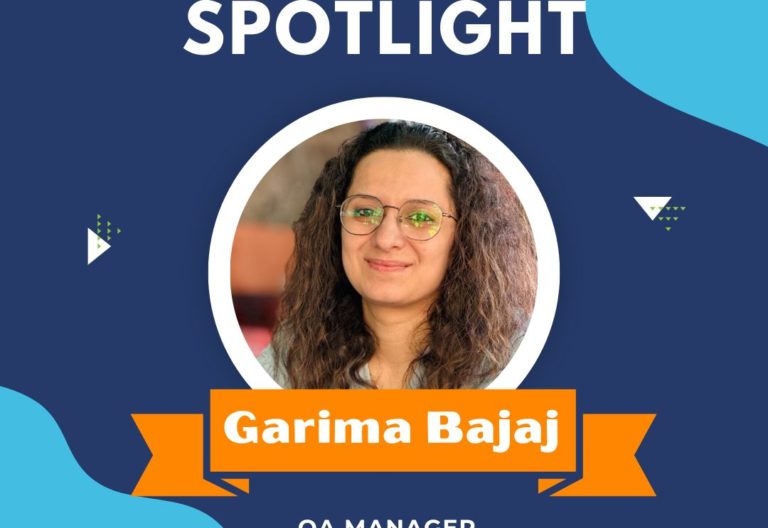Can you share some glimpses of your background and journey towards librarianship?
Librarianship is a field dedicated to organizing, managing, and providing access to information resources in various formats, typically within libraries or information centers. Librarians play a crucial role in connecting people with the information they need for education, research, entertainment, and personal development.
After completion of Degree in Library Information Science from Berhampur University, I started my professional career from JNV Barsoor, Bastar (CG), Balugaon College, Khurda (Odisha) JITM Engineering College, Parlakhemundi (Odisha). Having completed Master Degree in Library & Information Science & PGDCA I resigned from JITM Engineering college and joined in AMITY University, Bhubaneswar and then Sikkim Manipal University. After completion of M.Phil. Degree in Library and Information Science from Alagappa University, Tamil Nadu I left Sikkim Manipal University and joined in OUAT, Bhubaneswar (Odisha) and soon I moved once again to Sikkim Manipal University, (Sikkim). After awarded of my Ph.D. Degree in the year 2012 from Berhampur University, there was an opportunity to select Librarian in IIM Shillong in the year 2013 and still continuing my professional Carrere. During my tenure at IIM Shillong, I completed an MBA degree from North Orissa University through distance learning. Librarianship is a diverse and dynamic field that continues to evolve with advancements in technology and changes in information needs and consumption patterns. Librarians play an essential role in facilitating access to information and fostering lifelong learning in their communities.
I love being a librarian because I want to help people find the information they need, whether it is in books, articles, or databases, etc. by way of creating metadata about knowledge resources which makes them discoverable.” And my services as a librarian is a way to serve my nation as strong libraries build strong researchers and informed researchers build strong nations.”
My Missions & Visions are: To support teaching, learning and research with state-of-the-art information that complements, education, reflective thinking and development of thought using contemporary knowledge in the relevant field.
To promote a knowledge enriched learning community, which is committed to support the development and empowerment of the communities we serve with integrity.
To explore and implement innovative technologies and services to deliver information and scholarly resources that can be accessed by anyone any time anywhere in the world.
What would you consider the most rewarding parts of your job as a Librarian?
Helping people: One of the most fulfilling aspects of being a librarian is assisting patrons in finding information, whether it’s for academic research, personal interest, or any other purpose. Being able to connect people with the resources they need can be incredibly rewarding.
Promoting literacy and learning: Librarians often have the opportunity to foster a love of reading and learning in their communities. Whether through Storytime sessions for children, book clubs for adults, or educational workshops, librarians play a crucial role in promoting literacy and intellectual curiosity.
Preserving and sharing knowledge: Librarians are stewards of information and play a vital role in preserving cultural heritage and ensuring that knowledge is accessible to all. This may involve cataloging and organizing materials, digitizing collections, or curating exhibitions.
Building community connections: Libraries are often hubs of community activity, hosting events, workshops, and exhibitions that bring people together. Librarians have the opportunity to forge connections with patrons and other community organizations, fostering a sense of belonging and civic engagement.
Continuous learning and professional growth: The field of library science is dynamic and constantly evolving. Librarians have the opportunity to engage in lifelong learning, staying up-to-date with new technologies, information management techniques, and best practices in the field.
Overall, the most rewarding parts of being a librarian often revolve around making a positive impact on people’s lives, promoting intellectual growth and curiosity, and contributing to the preservation and dissemination of knowledge within the community.
Many Libraries are embracing technology and innovative services these days, can you share about any recent technological implementations or digital initiatives your library has undertaken.
During My tenure IIM Shillong Knowledge & Information Centre has grown into a state-of -the art Library by introducing Library Automation with RFID Technologies, Remote Access, Mobile Apps and Online Platforms, e.Mail alert Services, Digital Resources, Faceted Search and Discovery services, Responsive User Interface, Electronic Data Interchange, Cloud-hosted Library Solutions, Digital Preservation, Data Management Services, Virtual Programming, Kibo XS Devices, Scholarly communication services, Metadata, OPAC/ Web OPAC, And Current Awareness Services ( CAS) , Selective Dissemination of Information (SDI), E-Document Delivery services (EDDS) etc..
During my tenure, the Knowledge & Information Centre at IIM Shillong has evolved into a state-of-the-art library through the implementation of Library Automation with RFID Technologies, Remote Access, Mobile Apps, and Online Platforms. We have also introduced e-mail alert services, digital resources, faceted search and discovery services, a responsive user interface, electronic data interchange, cloud-hosted library solutions, digital preservation, data management services, virtual programming, Kibo XS devices, scholarly communication services, metadata management, OPAC/Web OPAC, and Current Awareness Services (CAS). Additionally, we offer Selective Dissemination of Information (SDI) and E-Document Delivery services (EDDS), among other offerings among other offerings. These are just a few examples of the technological implementations and digital initiatives that libraries adapt to the changing needs of their users and communities.
Can you share one aspects of librarianship that is particular to your country or geographic region?
Certainly! One aspect of librarianship that is particular to certain countries or geographic regions is the focus on indigenous knowledge and materials. In regions with significant indigenous populations, such as Canada, Australia, New Zealand, and parts of Latin America, libraries often prioritize collecting, preserving, and promoting indigenous languages, literature, art, and cultural materials. This includes works by indigenous authors, traditional stories, historical documents, and materials related to indigenous history, traditions, and practices.
Libraries in these regions may collaborate closely with indigenous communities to ensure that their collections accurately reflect and represent indigenous cultures, perspectives, and experiences. They may also offer specialized services and programs tailored to the needs and interests of indigenous library users, such as language revitalization initiatives, cultural workshops, and community events.
Librarians should be trained to handle indigenous materials and communities with cultural sensitivity, including respecting sacred items, cultural practices, and engaging respectfully with indigenous knowledge holders. This aspect of librarianship reflects a commitment to diversity, inclusion, and cultural preservation within the profession.
How do you stay updated on the latest trends and advancements in library science and how do you incorporate these insights in our daily work?
Professional Associations and Conferences: I have been a lifetime member of various library science associations in India such as the Indian Library Association (ILA), Management of Library Network (MANLIBNET), Indian Association of Special Library & Information Centre (IASLIC), Jharkhand Information & Library Association (JILA), Library Association of Bihar (LAB), Asian Library Association (ASIALA), All India Council for Technical Skill Development (AICTSD), and Library Professionals Association (LPA).
Continuing Education and Training: Participating & conducting in continuing education programs, workshops/Seminars/ Conferences, and online courses offered by libraries, universities, or professional organizations can help professionals stay updated on the latest developments in the field.
Networking: Engaging with peers, mentors, and experts in the field through professional networks, online forums, and social media platforms can provide opportunities to exchange ideas, share experiences, and learn about emerging trends.
Reading Professional Literature: Regularly reading professional journals, newsletters, blogs, and scholarly articles in library science can help professionals stay informed about current research, best practices, and emerging technologies.
Technology Monitoring: Keeping abreast of technological advancements relevant to library science, such as library management systems, digital preservation tools, and information retrieval systems, can help professionals adapt their services and workflows to incorporate new technologies effectively.
Collaboration and Partnerships: Collaborating with colleagues within and outside the library profession, as well as forming partnerships with other organizations and institutions, can provide opportunities to learn from diverse perspectives and exchange knowledge about innovative practices.
Experimentation and Innovation: Encouraging a culture of experimentation and innovation within the library setting can foster creativity and adaptability, enabling professionals to explore new ideas, test new approaches, and implement successful innovations in their daily work.
By actively engaging with these strategies, library professionals can stay informed about the latest trends and advancements in library science and effectively incorporate these insights into their daily work to enhance library services and support their communities.
What are the few challenges a librarian face in the career and how have you have overcome those?
Librarians face a variety of challenges in their careers, ranging from technological advancements to changing user needs. Here are a few common challenges and some potential ways to overcome them:
Technological Advancements: The rapid pace of technological change can be overwhelming for librarians, especially those who may not have a strong background in technology. Keeping up with new systems, software, and digital resources can be challenging.
- Overcoming it: Continuous learning and professional development are crucial. Librarians can attend workshops, webinars, and conferences to stay updated on the latest technology trends. Additionally, collaborating with IT professionals or taking online courses in relevant technologies can help bridge any knowledge gaps.
Budget Constraints: Libraries often face budget constraints, which can limit resources for collection development, staff training, and facility maintenance.
- Overcoming it: Librarians can advocate for their libraries by demonstrating the value they provide to the community. This may involve building partnerships with local organizations, seeking grant funding, or organizing fundraising events. Additionally, strategic budget planning and prioritization can help make the most of limited resources.
Information Overload: With the abundance of information available online, users may struggle to find relevant and reliable resources. Librarians must navigate this information overload to help users access accurate and credible information.
- Overcoming it: Librarians can teach information literacy skills to users, helping them evaluate sources for credibility, relevance, and bias. Librarians can also curate collections and create research guides tailored to specific topics or user needs. Additionally, promoting the use of library databases and other curated resources can help users find high-quality information more easily.
Changing User Needs: As society evolves, so do the needs and expectations of library users. Librarians must adapt their services and collections to meet these changing needs.
- Overcoming it: Regular assessment and feedback from users can help librarians understand their needs and preferences. Librarians can use surveys, focus groups, and usage statistics to gather data on user preferences and interests. Based on this feedback, librarians can adjust services, programs, and collections to better meet the needs of their communities.
Promoting Diversity and Inclusion: Libraries strive to be inclusive spaces that serve diverse communities. However, librarians may face challenges in ensuring that their collections, programs, and services are inclusive and representative of all users.
- Overcoming it: Librarians can actively seek out diverse voices and perspectives when selecting materials for their collections. They can also collaborate with community organizations to offer programs and services that reflect the needs and interests of diverse populations. Training staff in cultural competency and diversity awareness can also help ensure that the library is welcoming to all users.
If you could take a trip right now to visit any library in the world, which would it be and why?
If I could take a trip right now to visit any library in the world, I would choose the Library of Congress in Washington, D.C. The Library of Congress is the largest library in the world by shelf space and number of books. It has a vast collection of books, manuscripts, maps, photographs, and recordings, spanning across various subjects and disciplines.
The Library of Congress is not only a repository of knowledge but also an architectural marvel. Its stunning architecture and grandeur make it a must-visit for anyone interested in libraries and history. Additionally, the Library of Congress holds significant cultural and historical importance for the United States, serving as the national library and symbolizing the country’s commitment to intellectual freedom and education.
Exploring the Library of Congress would offer an unparalleled opportunity to immerse oneself in centuries of human knowledge and cultural heritage, making it a top choice for a library visit.
How about your Hobbies or what would you like to do apart from official work?
My “hobbies” involve helping users like whatever tasks or inquiries I have. Apart from that, I enjoy reading, baking, watching films, listening to music, traveling, gardening, playing & watching cricket, making friends, getting involve in social activities and helping needy and poor among other things.



Leave a Reply